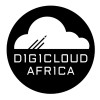As organisations increasingly seek to move away from vendor lock-in and reduce Microsoft licensing costs, Google Cloud offers compelling value and features to make migration and cloud optimisation simpler.
This is according to Digicloud Africa experts Louis van Schalkwyk and Sizwe Mabanga, who note that many organisations are finding that licensing costs can account for as much as half of their cloud costs. Many are also discovering that without careful planning ahead of migration, they do not achieve optimised multicloud environments that support efficiency, productivity and functions like big data analytics.
Sizwe Mabanga, Google Cloud architect and customer engineer at Digicloud Africa, says: “Multicloud isn’t fully understood yet. You have to be sensitive to latency and understand what applications and data to group and run in the same cloud for optimal performance. You may have to plan to collocate and consolidate some application groups into one, for example, for best results. Moving to the cloud is often not a lift and shift exercise, but rather an opportunity to optimise your architecture. Google Cloud makes this planning easier.”
They explain that with Google Cloud, organisations can use their own Microsoft licences or make use of licensing supplied by Google, paying only for what they need while getting scalable infrastructure to help improve agility and cost-efficiency. With Google Cloud infrastructure, organisations can more optimally run these applications to reduce overall costs.
Moving legacy applications to the cloud
Louis van Schalkwyk, Head of Technical Operations at Digicloud Africa, says there are multiple benefits to moving legacy applications to the cloud. “For a start, it allows customers to move away from having to manage their own hardware and infrastructure. They get access to whatever they need, when they need it and for only however long they need it.
Customers don’t have to procure, install and manage the underlying servers. Once in the cloud, customers can take advantage of services offered in the cloud over and above just the infrastructure. This is especially true when it comes to big data, analytics and machine learning,” he says.
Google Cloud offers particular advantages, he notes: “When migrating Microsoft applications to Google Cloud, you have an added benefit of Google managing your licences for you. You start paying for Windows and SQL licences as you spin up a machine and stop paying as soon as you stop the machine. This means you only pay for Microsoft licences while they’re in use. Some Microsoft licences are also based on the number of CPU cores in the machine: with Google Cloud, when you change the number of cores in your server, the licence used will adjust accordingly.”
However, moving these legacy applications can be challenging. Van Schalkwyk says: “Legacy applications are often large, monolithic applications and sometimes the underlying operating system is no longer supported in cloud environments. Monolith applications can sometimes benefit from being broken down into smaller components that run independently on cloud services.
Another challenge is their interaction with other applications on your network. If it’s a high volume (from a networking perspective) application, then care has to be taken when migrating it to the cloud.” He says that for this reason, it is important to perform a thorough inventory and network analysis of which applications speak to each other when planning a move.
“You want to migrate workloads in a coordinated manner with minimal surprises along the way,” he says. “The cloud shouldn’t just be another data centre, customers should take advantage of managed services where possible to take advantage of increased uptime and reduced management time/costs. Google offers fully managed Microsoft AD and SQL for customers looking to move away from managing their own servers.”
Simplified by Google Cloud
Van Schalkwyk says Google understands that customers have to embark on a cloud journey in order to take full advantage of what their cloud has to offer. “This journey typically starts with a discovery session to analyse existing applications to see which ones would be a good fit for cloud (and which ones will not). Google has recently made their Stratozone tool available (by invitation) to selected customers. This agentless tool runs on a customer’s network (local or cloud) and discovers all machines running on it, lists applications running on them, tracks network traffic between machines as well as monitors CPU, memory and disk utilisation. This information is then used to help the customer create a roadmap of applications to migrate to the cloud, what machine types to use and whether there are managed services available instead of migration to VMs.”
Google offers its Velostrata tool free to all customers migrating to Google Cloud. The tool allows customers to migrate VMs to Google Cloud quickly, safely and at scale. It uses streaming technology to perform migrations faster and has built-in testing and rollback should it be required.
Mabanga says: “Google Cloud offers customers plenty of ways to gain flexibility, optimise their architectures and save money. With Google Cloud and Digicloud Africa, customers can access a local network of certified and specialised partners that will use their Google Cloud experience and knowledge to ensure that customers are supported by qualified technical experts and consultants at every step of the cloud journey.”
Share
Digicloud Africa
Digicloud Africa is Google’s chosen enablement partner in Africa. Through Digicloud, Google is creating an ecosystem of Google Cloud partners across the continent. Digicloud supports its partner network by providing the necessary training, tools and resources needed to implement cloud solutions and support to their customers successfully. As customer demands for technology intensify, Digicloud is increasing its investment in supporting its partners to achieve sustainable growth. Digicloud’s partner enablement helps organisations build skills around open, advanced technologies to go to market with outcome-based solutions.
Follow Digicloud on LinkedIn.
Editorial contacts
